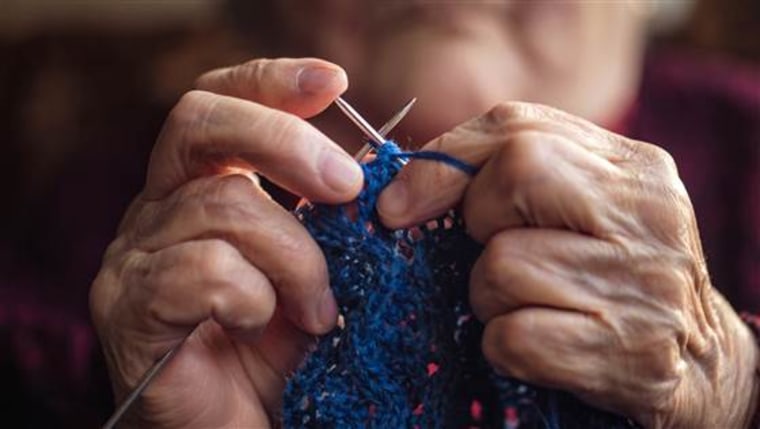Hoping for better brain health in old age? It might be time to learn to paint, knit or code. A study in Neurology finds people who enjoy artistic pursuits, crafting, socializing, or using computers can stave off mild cognitive impairment.

“The underlying concepts for all these protective factors, whatever the activity, is that you are activating the brain. Some people have called this ‘the use it or lose it hypothesis,’ ” says Rosebud Roberts, professor of epidemiology and neurology at the Mayo Clinic and an author of the study.
The researchers wanted to know: Is it possible to prevent the development of mild cognitive impairment (MCI) as we age?
Mild cognitive impairment affects 41.3 percent of the population aged 85-89. It differs from dementia or Alzheimer's disease — people with MCI appear confused and generally do not behave at a level that matches their age and education, but can still act independently. But people with MCI “are at increased risk at dementia,” Roberts says.
The researchers examined 256 subjects, without memory problems, ages 85 to 89. They specifically looked at this age group because it’s one of the fastest growing demographic groups, which is also at an increased risk for MCI. Subjects disclosed how they kept busy, sharing details about whether they participated in artistic activities, crafting, socializing, and computer activities.
104-year-old credits knitting for her longevity
Four years later 121 participants had developed MCI. But active people fared much better.
The researchers found:
- People who painted, sculpted, photographed, and drew in middle and old age were 73 percent less likely to develop MCI than those who did not.
- Social butterflies were 55 percent less likely to develop MCI.
- Using the computer, 53 percent were less likely to develop MCI.
- Crafters— which includes knitting and sewing —were 45 percent less likely to develop dementia.
“If you look at the artistic activities, the risk was decreased considerably more than crafts,” says Roberts. “I … can’t really explain why artistic activities protect more.”
The results indicate that just doing something, anything, provides protection against cognitive decline.
Memory matters: Take the brain fitness calculator
“[The paper] has provided yet more evidence that your lifestyle factors influence whether you develop dementia,” says Dr. Majid Fotuhi, founder and chief medical officer NeurExpand Brain Center, who was not involved in the study. “If you have a relaxing lifestyle that includes social engagements, making crafts, artistic activities, those interventions, those habits do make a difference in the future.”
A main takeaway: Being active and engaged throughout life provides the most protection.
“We need to be doing these things throughout life and we need to start early,” says Roberts. “The strongest benefits were [for people] engaged in midlife and late life.”